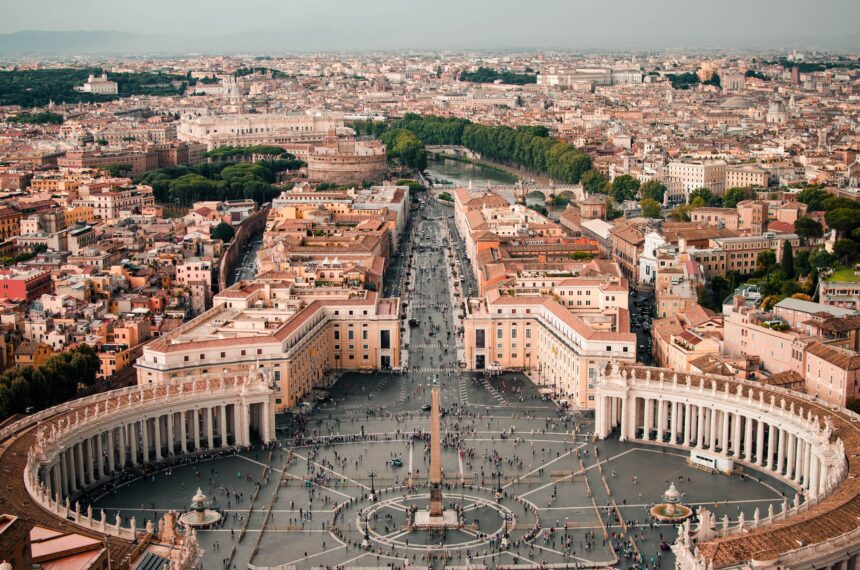The Catholic Church is one of the largest Christian denominations globally, with a long and rich history. The Church was founded nearly 2,000 years ago when Jesus Christ chose His twelve disciples and gave them the authority to establish a new Church.
Saint Peter was the first leader of the Catholic Church, and after his death, other leaders succeeded him. During the first century, the Church grew rapidly and had followers in many parts of the world.
In the fourth century, the Church became a powerful institution, dominating large parts of Europe. In the fifth century, Pope Leo I defended the Church’s faith against Western Christian heresies, strengthening the Church’s authority. Many who opposed Catholicism were persecuted or killed, especially those who questioned the Holy Trinity.
In the sixth century, Pope Gregory I played a significant role in shaping the Western Catholic Church. At that time, there were significant differences between the Eastern and Western Churches, but Pope Gregory I made efforts to unite these factions.
In the eleventh century, Pope Gregory VII fought for the Church’s authority over political rulers, arguing that European and Asian leaders should follow the Church’s guidance, or their rule would lack God’s blessing. This led to a major conflict between the Pope and the German king, but Pope Gregory VII succeeded in strengthening the Church’s authority after the king’s death.
In the eleventh century, Pope Urban II called for the First Crusade, where Christians sought to liberate Jerusalem from Muslim rule. This marked the beginning of the Crusades.
In the thirteenth century, Pope Innocent III had significant papal authority and used his power to strengthen the Church. During his time, the Church was battling against Protestants and Muslims, but Pope Innocent III managed to consolidate the Church’s authority.
In 1540, Pope Paul III established the Catholic Church’s security agency known as the Society of Jesus or Jesuit Fathers, with Ignatius Loyola as its first director. This organization expanded its influence across Europe, the Middle East, India, Africa, and Brazil.
Ignatius Loyola created a set of rules and guidelines for the Jesuits, including principles that were contrary to traditional Christian values, such as the sanction to kill individuals or groups threatening the Church’s broader interests.
Catholic Church spies were required to take a secrecy oath and be faithful in safeguarding the Church’s assets and broader interests. They were tasked with spreading Christianity and conducting intelligence operations worldwide.
In the sixteenth century, Pope Pius V led a campaign against the Turks in the Mediterranean Sea and established the Canonical System of the Catholic Church, consolidating the Church’s authority.
In the twentieth century, Pope John XXIII initiated the Second Vatican Council, which brought significant reforms to the Catholic Church. At that time, the Church was grappling with various societal, economic, and political changes, but Pope John XXIII succeeded in strengthening the Church’s authority.
Pope Francis, the current Pope, is known for implementing reforms in the Church, including addressing social, economic, and environmental issues. While the Church faces numerous challenges in the modern world, Pope Francis continues to enhance the Church’s authority and enact important reforms.
The world has witnessed many conflicts arising from religious institutions seeking to strengthen their power, authority, and influence to protect their interests. For example, in Rwanda, leaders of the Catholic Church, including Bishop Ntihinyurwa, Augustine Misago, Athanase Seromba, and others, were involved in empowering the dictator General Juvenal Habyarimana and promoting ethnic divisions through a policy called “AKAZU.”
AKAZU was a discriminatory policy enacted in 1973, shortly after General Juvenal Habyarimana overthrew the first Rwandan President, Gregory Kayibanda. AKAZU aimed to empower the Hutu ethnic group while suppressing the Tutsi. After the Rwandan genocide in 1994, some Catholic Church leaders were arrested and convicted for their involvement.
In Burundi, General Michel Micombero, who ruled from 1966 to 1976, used the support of Catholic Church leaders to strengthen his regime and gain legitimacy as a defender of the oppressed. The Catholic Church declared him a chosen savior.
In Nigeria, Catholic Church leaders in the southern regions, particularly among the Igbo ethnic group, supported the secession of Biafra. This led to a rebellion and a brutal conflict in which more than 2,500,000 people were killed before Biafra’s dream was shattered by General Yakubu Gowon. In Tanzania, from 1967 to 1970, Catholic Church leaders influenced President Julius Nyerere to advocate for the recognition of Biafra.
Operation Condor, initiated by the United States in the 1950s to counter socialist governments in Latin America and the Caribbean, prompted the Vatican to issue statements opposing socialism. This resulted in military coups in several countries, such as Chile, Brazil, and others. Socialist leaders who were ousted included Salvador Allende, Juan Jose Torres, Omar Torrijos, Jacobo Arbenz, Joao Goulart, and Manuel Zelaya. Fidel Castro of Cuba survived numerous attempts to overthrow him, and Hugo Chavez of Venezuela narrowly escaped assassination and overthrow.


